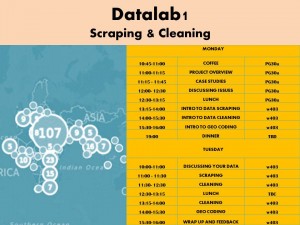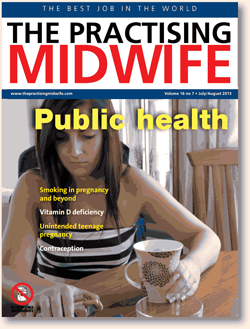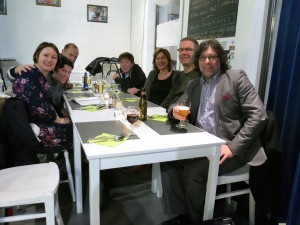Dr. Dinusha Mendis, Associate Professor in Law and Co-Director of the Centre for Intellectual Property Policy and Management (CIPPM) in the Faculty of Media and Communications was awarded a period of research leave funded by the Fusion Investment Fund which commenced on 1 January 2015.
The research leave was granted for Dr. Mendis to further her research into the digital aspects of Copyright Law and the Intellectual Property (IP) Implications of 3D Printing.
During January-February 2015, Dr. Mendis spent time at the University of Bocconi, Milan in the capacity of a Visiting Fellow. During this time she collaborated with researchers at the Art, Science and Knowledge (ASK) Centre at Bocconi University, in particular with Professor Maria Lilla Montagni (currently Research Fellow at the Harvard Law School).
In February, Dr. Mendis travelled to the University of Tasmania (UTAS), Australia and is currently based there as Lord Provost Fellow involved in collaboration work with Professor Dianne Nicol and Dr. Jane Nielsen of the Faculty of Law, UTAS. The collaboration work involves considering the IP implications of 3D Printing.
The time has also been utilised to collaborate with colleagues at Melbourne University, Monash University and Swinburne University of Technology where Dr. Mendis was invited to present her recent research, which she carried out for the UK Intellectual Property Office (UKIPO). The presentation formed part of the ‘Innovation Seminar Series’, organised by the Centre for Transformative Innovation at Swinburne University of Technology.
Dr. Mendis was also invited to present her research at a Staff Seminar at UTAS, in her capacity as Visiting Fellow. The presentation which showcased the findings, conclusions and recommendation of the UKIPO Commissioned Project on the IP Implications of 3D Printing, also provided an overview of Copyrightuser.org – a project which Dinusha has been involved in since 2012 and carried out in collaboration with CREATe, University of Glasgow and CEMP, Bournemouth University.
The Fellowship at UTAS, which began in February will be completed at the end of March 2015 and will further include collaboration meetings with Associate Professor Matthew Rimmer of the College of Law, Australian National University, Canberra.
The collaboration work which is currently being carried out as part of the Research Leave will culminate in a number of outputs, specifically peer-reviewed journal articles and an edited book.
In January 2015, Dr. Mendis’s Commissioned article, titled ‘Clone Wars Episode II – The Next Generation: The Copyright Implications of Computer-Aided Design (CAD) Files was published in a peer-reviewed academic journal Law, Innovation and Technology (Hart Publishing) (pp. 265-281).































 ESRC Festival of Social Science 2024 Open Call – Deadline for Applications Thursday 16 May
ESRC Festival of Social Science 2024 Open Call – Deadline for Applications Thursday 16 May We can help promote your public engagement event or activity
We can help promote your public engagement event or activity New Seed Fund for Public Engagement with Research: Last Six Funding Opportunities Available
New Seed Fund for Public Engagement with Research: Last Six Funding Opportunities Available Congratulation on new interdisciplinary publication
Congratulation on new interdisciplinary publication New seed fund for public engagement with research: open for applications
New seed fund for public engagement with research: open for applications Horizon Europe News – December 2023
Horizon Europe News – December 2023